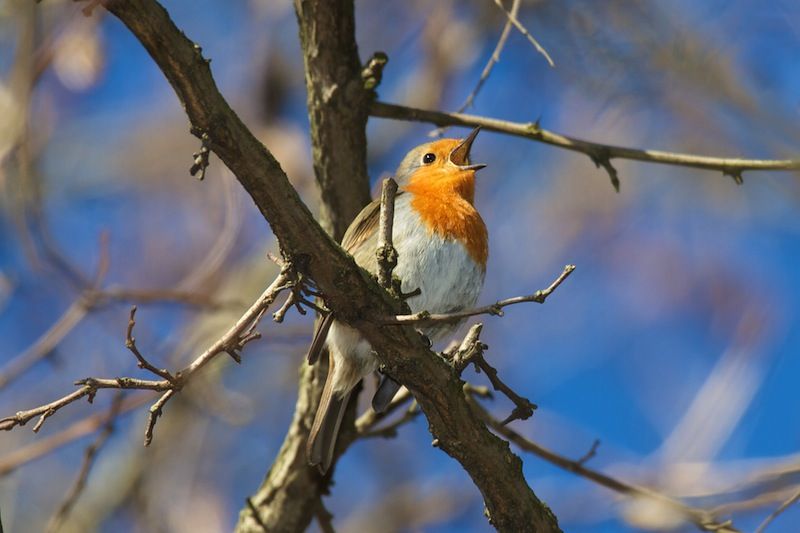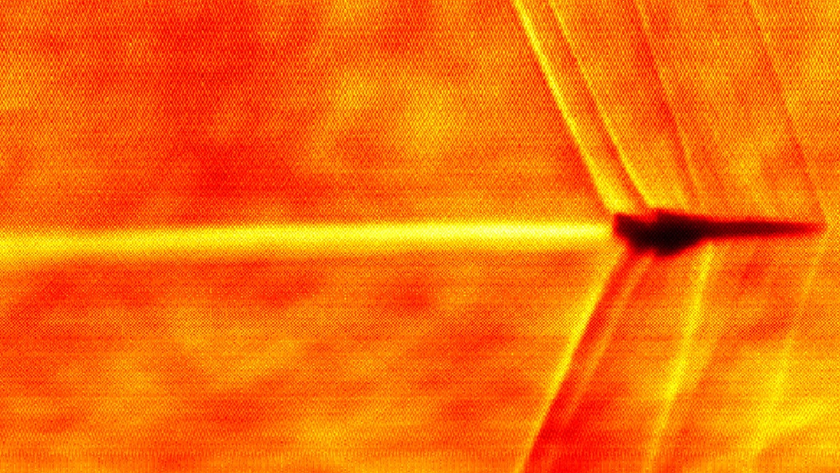Migrating Birds Could Inspire New Military Tech

Hypersonic drones, flying armored cars, space planes — these are the kinds of projects for which DARPA, or the U.S. Defense Advanced Research Projects Agency, is best known. But a recent study by DARPA researchers focuses on something decidedly less high-tech: birds.
In an effort to develop new sensor technologies for the U.S. military, researchers from DARPA's Quantum Effects in Biological Environments (QuBE) program recently conducted a study investigating how birds navigate using their internal magnetic compasses. Specifically, these bird-watching scientists, led by Henrik Mouritsen of the University of Oldenburg in Germany, wanted to find out if the electromagnetic noise produced by today's electronics (i.e., cellphones, televisions and radios) interferes with the biological compasses of migratory birds.
Birds that migrate at night, such as the European robin, have an internal magnetic compass that helps them determine where to fly during the spring and fall migration seasons. Scientists have long debated whether the low-level, artificial electric and magnetic fields created by electronic devices affect this avian compass, as well as other biological processes of birds and other animals. [Humanoid Robots to Flying Cars: 10 Coolest DARPA Projects]
In their new study, published May 7 in the journal Nature, the researchers found that the electromagnetic noise permeating the modern urban landscape can disrupt the finely tuned biological systems of so-called higher vertebrates, including birds, reptiles and mammals.
The scientists conducted a series of experiments from 2005 to 2011 using European robins. When the birds were exposed to everyday levels of electromagnetic background noise, the animals failed to orient themselves correctly. Later, when the researchers shielded the birds from this type of interference, the same robins were able to correct their migratory direction.
The researchers also tested robins in rural environments, far from major sources of electromagnetic noise, and found that these birds had no problems orienting their internal compasses.
While this new research sheds light on an important topic — namely, how human beings' love of gadgets affects animals — one mystery still remains: Why is DARPA so interested in birds?
Sign up for the Live Science daily newsletter now
Get the world’s most fascinating discoveries delivered straight to your inbox.
"Nature is an extraordinary testbed," Matt Goodman, the QuBE program manager, said in a statement. "We think it's possible that over millions of years of evolution, biological organisms have developed systems that exploit quantum physics. The QuBE program is designed to test this hypothesis. The work we're pursuing questions fundamental assumptions about how biological processes work."
In other words, Goodman and his team are studying birds to figure out how magnetic navigation works (and what prevents it from working). The findings could lead to new, cutting-edge technologies, such as bio-inspired sensors.
"The time and cost to develop many of the traditional sensors that the Department of Defense uses is substantial," Goodman said. "Nature, on the other hand, has already evolved extraordinary capabilities — think of a dog's sense of smell."
These types of biological systems tend to be robust and durable, and feature natural sensors that are highly selective, he added.
"We're hoping to follow nature's lead to capture those qualities in man-made sensor systems," Goodman said.
Follow Elizabeth Palermo on Twitter @techEpalermo, Facebook or Google+. Follow Live Science @livescience, Facebook & Google+. Original article on Live Science.

Elizabeth is a former Live Science associate editor and current director of audience development at the Chamber of Commerce. She graduated with a bachelor of arts degree from George Washington University. Elizabeth has traveled throughout the Americas, studying political systems and indigenous cultures and teaching English to students of all ages.











